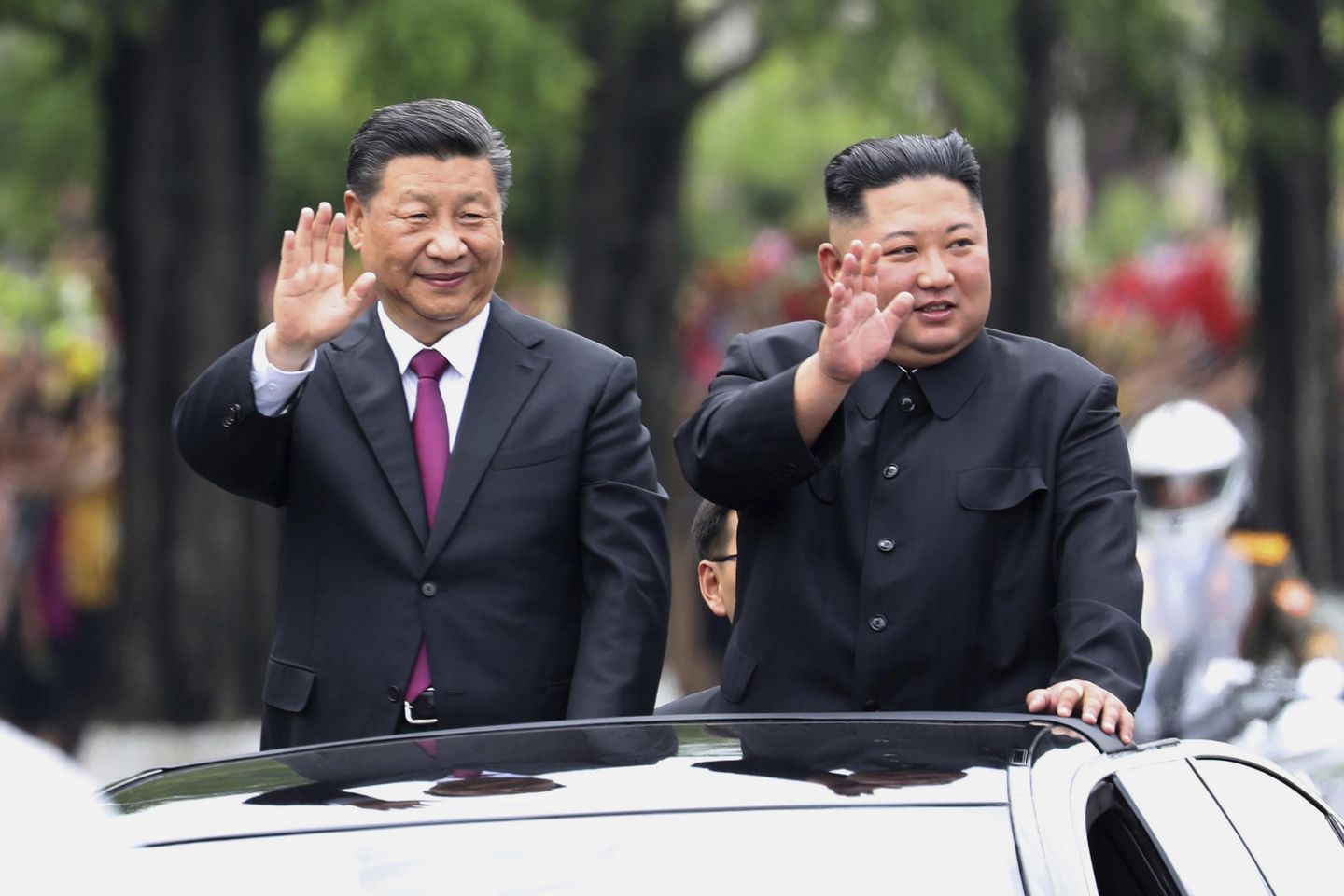
China, Russia and North Korea are rapidly expanding their nuclear forces and increasing joint strategic collaboration, undermining the U.S. ability to deter a nuclear war, according to senior Pentagon officials.
Compounding problems of maintaining nuclear war deterrence, the urgently needed U.S. strategic modernization program is behind schedule and over budget. As a result, the U.S. might need to expand its nuclear arsenal and forces to meet the new challenges, the officials told a House panel.
Brandi Vann, acting assistant defense secretary for nuclear deterrence, said the U.S. is facing one of the most unprecedented strategic environments in American history.
“China and Russia are modernizing and diversifying their nuclear forces at a breathtaking pace, and the Democratic People’s Republic of Korea continues to demonstrate its ability to execute a strategic attack,” she told the House Armed Services strategic forces subcommittee on Wednesday.
“Additionally, our adversaries are increasing their level of coordination and cooperation, which also raises the possibility of simultaneous conflicts with multiple nuclear-armed adversaries.”
Iran continues to build long-range missiles and expand its nuclear program, raising the prospect of a future nuclear-armed state with intercontinental ballistic missiles.
All current U.S. nuclear forces – missiles, bombers and missile submarines – are being modernized as part of President Trump’s proposed $1 trillion defense budget for fiscal 2026.
Ms. Vann warned that the modernization may be insufficient for “the realities of the security environment we will face in the future.”
The officials did not give details of a possible expansion of nuclear forces during the hearing.
Air Force Lt. Gen. Andrew Gebara, deputy chief of staff for strategic deterrence, said the U.S. is facing “an unprecedented strategic environment” led by China’s rapid expansion of nuclear forces and an unwillingness by Beijing to enter arms talks.
Asked about growing adversary collaboration, Gen. Gebara said: “Clearly, these countries are talking and they’re collaborating. What I would say is we don’t need to be scared. We do need to be prepared.”
To mitigate the threats, the nuclear modernization needs to go forward “as fast as we can” to bring new systems online, he said.
Current nuclear modernization plans call for spending $946 billion in the next decade. The program calls for building 659 new ground-based ICBMs, the Sentinel intercontinental missile system, 100 new B-21 strategic bombers, and 12 Columbia-class ballistic missile submarines.
The Sentinel program has been delayed and is facing cost overruns.
Vice Adm. Johnny Wolfe, director of Navy strategic systems, testified that modernizing the ballistic missile submarine force with the Columbia-class submarines is urgent.
“The Navy strategic deterrent stands at a critical juncture to maintain our advantage in the face of evolving threats,” Adm. Wolfe said. “We must prioritize the modernization of our nuclear infrastructure and industrial base.”
On China, Gen. Gebara said the People’s Liberation Army Rocket Force is projected to have over 1,000 nuclear warheads by 2030, “effectively adding the entire nuclear stockpile of the next largest existing power every few years.”
In the past year, China added 100 new nuclear warheads to its arsenal, which includes new missile fields in western China with advanced, multi-warhead reentry vehicles.
“The nuclear activities of Russia, North Korea and Iran further complicate deterrence,” Gen. Gebara said.
The emergence of multiple enemy nuclear powers poses a new and fundamentally different strategic environment that “has never been seen before in this emerging world,” the three-star general said.
Andrea Yaffe, acting assistant defense secretary for space policy, echoed the general’s concerns.
“We remain very concerned about increased cooperation, to include on missile cooperation between Russia and North Korea, for example,” Ms. Yaffe said.
“We’re watching it very closely, but this is a dynamic that we need to take into account as part of the overall multiple nuclear challenge or strategic situation that we face.”
On Iran, Gen. Gebara said the Trump administration has made clear that the U.S. will not allow Tehran to build nuclear weapons.
Ms. Yaffe added: “Preventing Iran from acquiring a nuclear weapon is absolutely of paramount importance to the United States.”
The Pentagon is providing “credible options” to the president as part of a whole-of-government strategy to deny Iran nuclear weapons, she said.
Rep. Scott DesJarlais, the subcommittee chairman, said sustaining the ageing nuclear arsenal and modernizing it are needed, but they are unable to meet the new nuclear threats.
“China’s nuclear breakout has fundamentally transformed the security landscape,” the Tennessee Republican said.
Russia’s nuclear stockpile also continues to grow, making the new “tripolar” environment of the U.S., China and Russia a less stable and more competitive world, he said.
“This was not the future we anticipated when the plan for nuclear modernization was developed,” Mr. DesJarlais said. “We must adapt to these new challenges and supplement our modernization plans with tailored capabilities to address the changing threat environment.”












